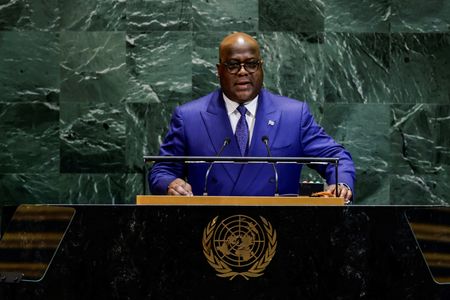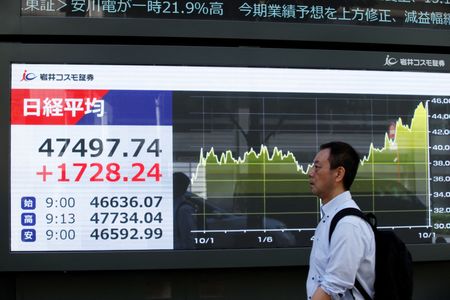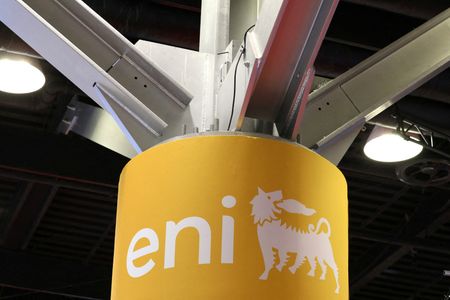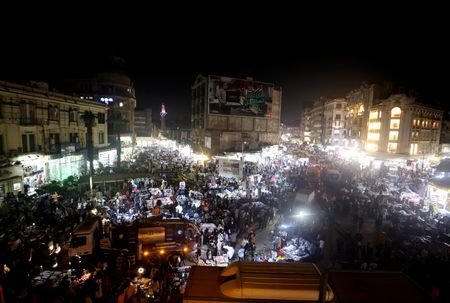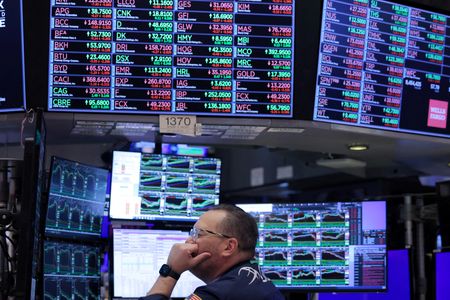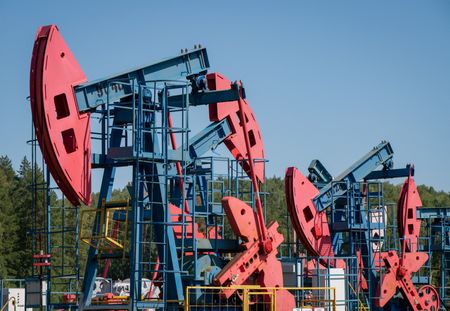By Emily Chow and Trixie Yap
SINGAPORE (Reuters) -Oil prices rose around 1% on Monday after OPEC+’s planned production increase for November was more modest than expected, tempering some concerns about supply additions, though a soft outlook for demand is likely to cap near-term gains.
Brent crude futures climbed 67 cents, or 1% to $65.2 a barrel by 0625 GMT, while U.S. West Texas Intermediate crude was at $61.54, up 66 cents, or 1.1%.
“The price jump has primarily been boosted by OPEC+’s decision for a lower-than-expected production hike next month as the group intended to buffer the recent slump in oil markets,” said independent analyst Tina Teng.
On Sunday, the Organization of the Petroleum Exporting Countries plus Russia and some smaller producers said it would raise production from November by 137,000 barrels per day (bpd), the same modest monthly increase as in October, amid persistent concerns over a looming supply glut.
In the run-up to the meeting, sources said although Russia was advocating for an increase of 137,000 bpd to avoid pressuring prices, Saudi Arabia would have preferred double, triple or even quadruple that figure to regain market share more quickly.
In the near term, some analysts expect the refinery maintenance season starting soon in the Middle East to help cap prices. [REF/OUT]
“Higher-than-usual refinery maintenance across the Middle East in Q4 will leave more crude available for shipment, further contributing to the prospect of strong export volumes,” said Sentosa Shipbrokers in a client report.
Refiners elsewhere could also limit their oil intake during their shutdowns.
“As the shoulder season progresses… a ramp-up in refinery maintenance should create a significant surplus, spurring a selloff in oil,” BMI analysts said in a client note.
Expectations of weak demand fundamentals in the fourth quarter is another factor limiting the market’s upside.
“With the absence of any fresh bullish catalysts and growing ambiguity on the demand outlook, oil prices are likely to stay capped despite OPEC+’s smaller-than-feared output hike,” said Priyanka Sachdeva, senior market analyst at Phillip Nova.
“The reality is that the market is gradually shifting toward a phase of oversupply, with seasonal demand expected to taper off into winter and macro data offering little upside impulse,” she added.
(Reporting by Emily Chow; Editing by Jamie Freed, Shri Navaratnam and Edwina Gibbs)



